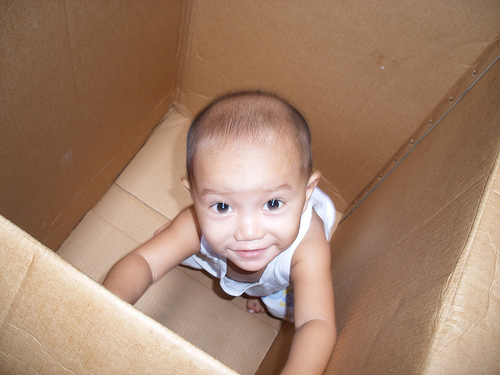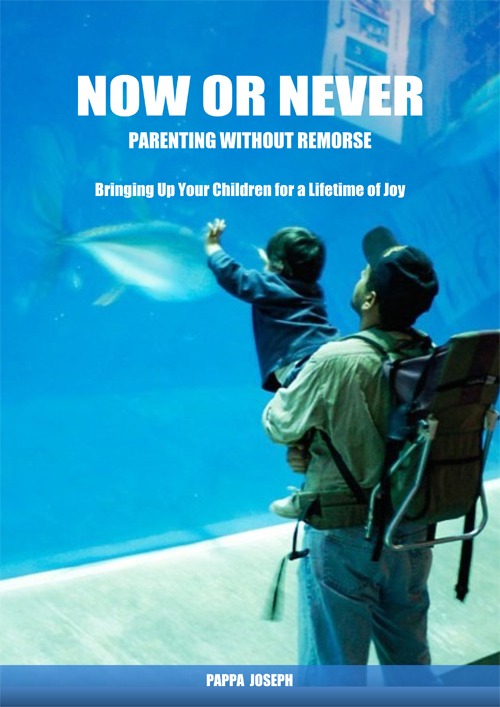By Rae Pica
Besides the fact that they were built to do so, there are a great many reasons why infants need to move. The truth is, even though their movement capabilities are extremely limited when compared with even those of a toddler, movement experiences may be more important for infants than for children of any other age group. And it’s not all about motor development either.
Thanks to new insights in brain research, we now know that early movement experiences are considered essential to the neural stimulation (the ‘use-it-or-lose-it’ principle involved in the keeping or pruning of brain cells) needed for healthy brain development.
Not long ago, neuroscientists believed that the structure of a human brain was genetically determined at birth. They now realize that although the main ‘circuits’ are ‘prewired’ (for such functions as breathing and the heartbeat), the experiences that fill each child’s days are what actually determine the brain’s ultimate design and the nature and extent of that child’s adult capabilities.
An infant’s brain, it turns out, is chock-full of brain cells (neurons) at birth. (In fact, a one-pound fetus already has 100 billion of them!) Over time, each of these brain cells can form as many as 15,000 connections (synapses) with other brain cells. And it is during the first three years of life that most of these connections are made. Synapses not used often enough are eliminated. On the other hand, those synapses that have been activated by repeated early experiences tend to become permanent. And it appears that physical activity and play during early childhood have a vital role in the sensory and physiological stimulation that results in more synapses.
Neurophysiologist Carla Hannaford, in her excellent book, Smart Moves: Why Learning Is Not All in Your Head, states: ‘Physical movement, from earliest infancy and throughout our lives, plays an important role in the creation of nerve cell networks which are actually the essence of learning.’
She then goes on to relate how movement, because it activates the neural wiring throughout the body, makes the entire body — not just the brain — the instrument of learning.
Gross and fine motor skills are learned through repetition as well — both by virtue of being practiced and because repetition lays down patterns in the brain. Although it hasnt been clearly determined that such early movements as kicking, waving the arms, and rocking on hands and knees are ‘practice’ for later, more advanced motor skills, it’s believed that they are indeed part of a process of neurological maturation needed for the control of motor skills. In other words, these spontaneous actions prepare the child – physically and neurologically – to later perform more complex, voluntary actions.
Then, once the child is performing voluntary actions (for example, rolling over, creeping, and walking), the circle completes itself, as these skills provide both glucose (the brain’s primary source of energy) and blood flow (‘food’) to the brain, in all likelihood increasing neuronal connections.
According to Rebecca Anne Bailey and Elsie Carter Burton, authors of The Dynamic Self: Activities to Enhance Infant Development, whenever babies move any part of their bodies, there exists the potential for two different kinds of learning to occur: learning to move and moving to learn. Still, recent evidence indicates that infants are spending upward of 60 waking hours a week in things – high chairs, carriers, car seats, and the like!
The reasons for this trend are varied. Part of the problem is that more and more infants are being placed in childcare centers, where there may not be enough space to let babies roam the floor. Or, given the number of infants enrolled, there may be little opportunity for caregivers to spend one-on-one time with each baby. This means, in the morning, an infant is typically fed, dressed, and then carried to the automobile, where she’s placed in a car seat. She’s then carried into the childcare center, where she may spend much of her time in a crib or playpen. At the end of the day, she’s picked up, placed again into the car seat, and carried back into the house, where she’s fed, bathed, and put to bed.
Even when parents are home with baby, they seem to be busier than ever these days. Who has time to get on the floor and creep around with a child? Besides, with today’s emphasis on being productive, playing with a baby would seem almost a guilty pleasure! And if the baby seems happy and safe in a seat placed conveniently in front of the TV, in a bouncer hung in a doorway, or cruising about in a walker, then what’s the harm? It’s a win/win situation, isn’t it?
In fact, it isn’t. Being confined (as one colleague says: ‘containerized’) affects a baby’s personality; they need to be held. It may also have serious consequences for the child’s motor – and cognitive – development.
Other trends in today’s society having an impact on infants’ opportunities to move are the inclination to restrict, rather than encourage, freedom of movement and the misguided belief that early academic instruction will result in superbabies. (In 1999, 770,000 copies of infant software – ‘lapware’ – were sold!)
Humans are meant to move and play. The inclination – the need – is hardwired into them. Babies, in fact, spend nearly half of their waking time – 40% – doing things like kicking, bouncing, and waving their arms. And while it may appear all this activity is just for the sake of moving, it’s important to realize a baby is never ‘just moving’ or ‘just playing’. Every action extends the child’s development in some way.
Rae Pica has been an early childhood education consultant, specializing in children’s physical activity, since 1980. A former adjunct instructor with the University of New Hampshire, she is the founder and director of Moving & Learning and the author of 18 books, including the text Experiences in Movement and Music (now in its 5th edition), the award-winning Great Games for Young Children and Jump into Literacy, and A Running Start: How Play, Physical Activity, and Free Time Create a Successful Child, written for the parents of children birth to age five. Her website: www.raepica.com



